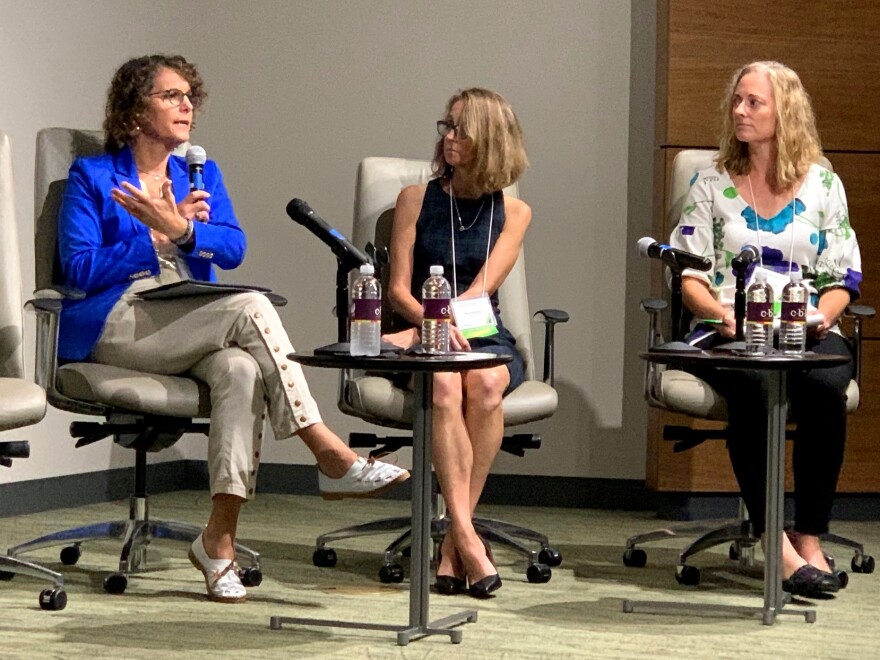A new study suggests hope could be an important tool in combating climate change in Tampa Bay.
University of South Florida anthropologist Rebecca Zarger presented initial findings from a recent survey during a workshop on climate change in downtown Tampa Friday.
The 2018-2019 survey polled residents of Tampa’s most urban neighborhoods about how they feel about climate change and how they think their community should prepare for it.
RELATED: Read more of WUSF's coverage of climate change
It found 68% of participants think Tampa leaders should consider climate change in all relevant decisions they make. But the survey also found most of those respondents were either unsure about what they could do at an individual level or felt powerless about making meaningful change.
“Highlighting the negative is not a good place to leave people,” Zarger said. She acknowledged it may sound strange to associate climate change problems with hopefulness, but said that's what the research is saying people need.
“That it’s actually really significant for people to imagine different possible futures and to think about what can be done, to avoid feeling paralyzed or cynical about what legislation or other kinds of mechanisms might be able to achieve,” she said.
Zarger said her team will continue to analyze the survey data in order to better understand the demographics of who participated, which will help inform future climate change outreach.

The workshop, hosted by the USF STEM Collaborative, featured discussions about extreme weather events, and how transportation, the built environment and public health are all related to climate change.
One particular theme resounded throughout the different sessions, that Tampa Bay's low-income residents will be some of the most negatively affected by climate change.
A lot of these residents live in areas with outdated construction not built to withstand the extreme weather events and heat that could become the new normal. And they often don't have enough money or access to transportation to properly handle those events.
Dr. Marissa Levine, former Virginia state health commissioner and a current USF professor, said the community needs to acknowledge its past in order to improve the future for these vulnerable populations.
"Injustices, racism – there were significant political policy decisions based on those issues that resulted in a lot of what we see here that are impacting (us), that climate change will impact us in the future…we have to address and to, some degree, recognize and come to conclusion about that history, we can’t just ignore it" she said.
Other at-risk groups include elderly residents and people with chronic health problems or disabilities.
Presenters said in order to effectively prepare for climate change, leaders need to involve vulnerable residents in decision-making.
LISTEN:




